On November 6, our friend and editor of the Commons journal Sasha Kravchuk would have turned 38.
On this day, despite the weather, Sasha would usually gather dozens of his very different friends around a campfire in a Kyiv urban forest. These were the people with whom he went hiking and dancing, with whom he went to protests and wrote lyrics, the people he changed and with whom he tried to change this world for better.
Unfortunately, Sasha did not live to be 38: in July, his heart stopped in his sleep.
Your Presence Brought Us Joy
Our colleague was a bright person, shaped by diverse experiences. He grew up in Turbove, a village in Vinnytsia Oblast. After working as a train conductor, Sasha defended his PhD thesis in Economics and worked in the corporate sector. But later he left his high-paying job and career for left-wing activism.
Sasha joined the editorial board of Commons in 2014. Later, we elected Sasha as our executive editor, so he organized our activities across the board. This was probably one of the best decisions the editorial board has ever made. His dedication and systematic approach were the basis of our work for six and a half years. During all this time, Sasha’s editorial work was in virtually every piece published by Commons.
Our friend put a lot of effort into making Commons more open and critical, improving its quality. Sasha was so hardworking, focused, and organized that his loss is irreparable for us — and this is not empty eulogy. As we tried to pull ourselves together a few days after our friend’s death and figure out how to move forward, we unanimously agreed that Sasha could not be fully replaced — either by one person, or by three people. But we also agreed that the best way to honor his memory is to continue the development of the journal that was so important to him. And so we continue our work together.
Sasha was a person whose sharp mind was surprisingly combined with sincere modesty, and whose discipline and systematic work were complemented by phenomenal empathy and sensitivity. “Your presence brings me joy,” he could write in a birthday greeting. On Sasha’s birthday, first and foremost, we would like to say, “Your presence brought us joy.” And we also want to tell the reader about the kind of person Sasha remains for us: a scholar, a colleague, a comrade, a friend.
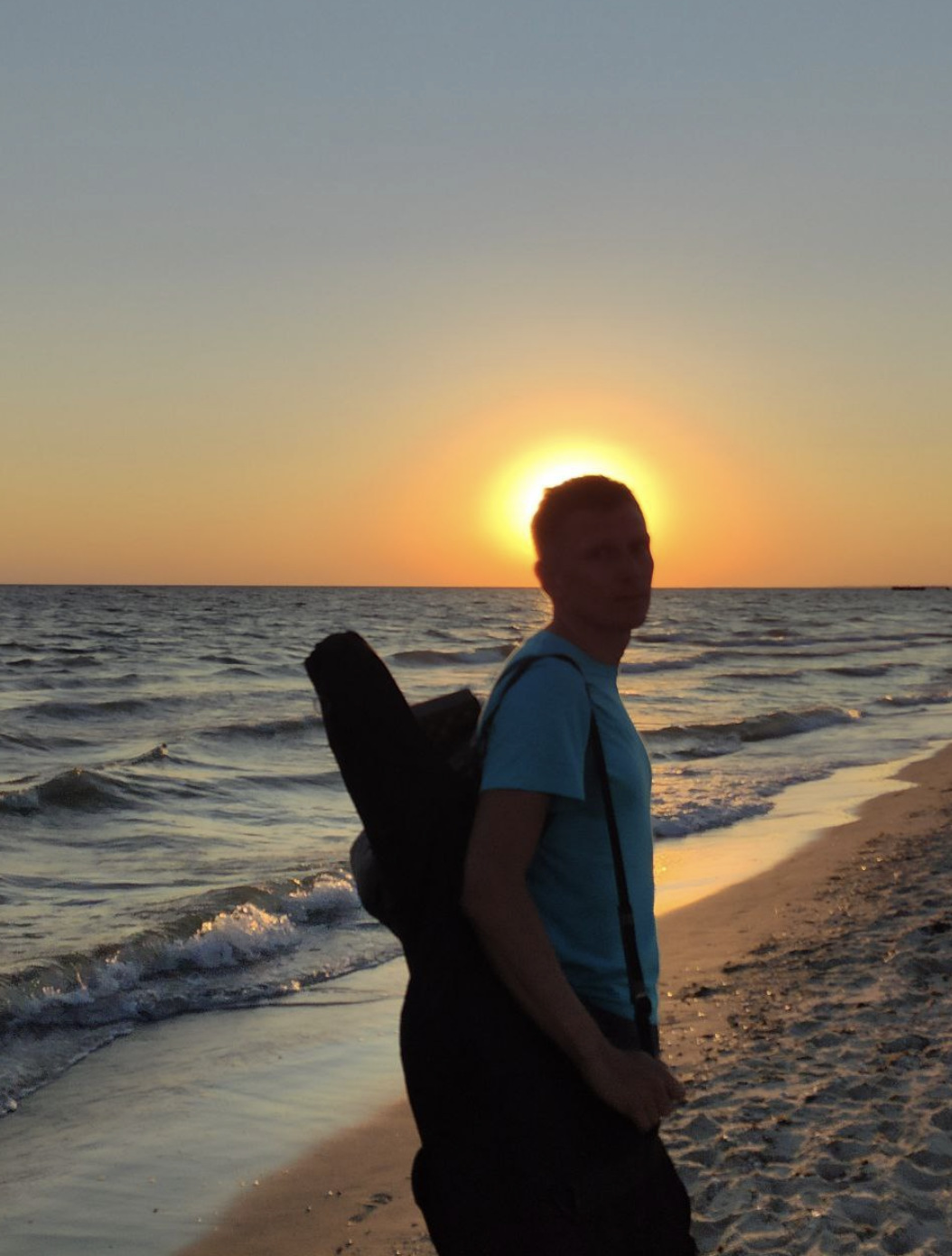
Photo credit: Friends’ archives
A Scholar: Bringing About Another World
Sasha was one of the very few left-wing economists in Ukraine. As a scholar, he was good at conceptualizing complex processes, isolating the key points in the flow of information, and asking questions that clarified rather than confused. He was a professional economist with a realistic vision of the world and a passionate desire for change.
While Ukrainian and global economic scholarship is dominated by a belief in the primacy of private interest and the omnipotence of the “invisible hand of the marketplace,” Sasha’s vision was radically different. In his research, most of which was published in Commons, he emphasized the importance of the public interest and common goods, fair redistribution, and democratic economic governance. He viewed the economy as an integral part of the political and social realms, not as a sphere that “naturally” dominates all others.
Sasha wrote many articles on economic issues and was the editor-in-chief and co-author of a number of analytical works, including the books Alternative Mechanisms of Social and Economic Development of Ukraine, A Future Without Capitalism, Cybernetics and Democratic Economic Governance, and Fair Energy Transition (written by Maryna Larina and edited by Sasha). To work on these collections, Sasha gathered people who shared the conviction that we need not only a critical analysis of reality, but also visions, or even utopias. In his own words from the preface to A Future Without Capitalism, we need not only to understand “why we are caught in a vicious circle of capital accumulation crises,” but also to answer the question “what changes we need to make the long-awaited other world not only possible, but real.” At the most general level, the recipe that Sasha and the other authors of the collection came up with was as follows:
“Profitability and capital accumulation should be replaced by new tools for assessing social efficiency, based on saving labor and resources to meet needs, rather than on the ongoing consumption at any cost.”
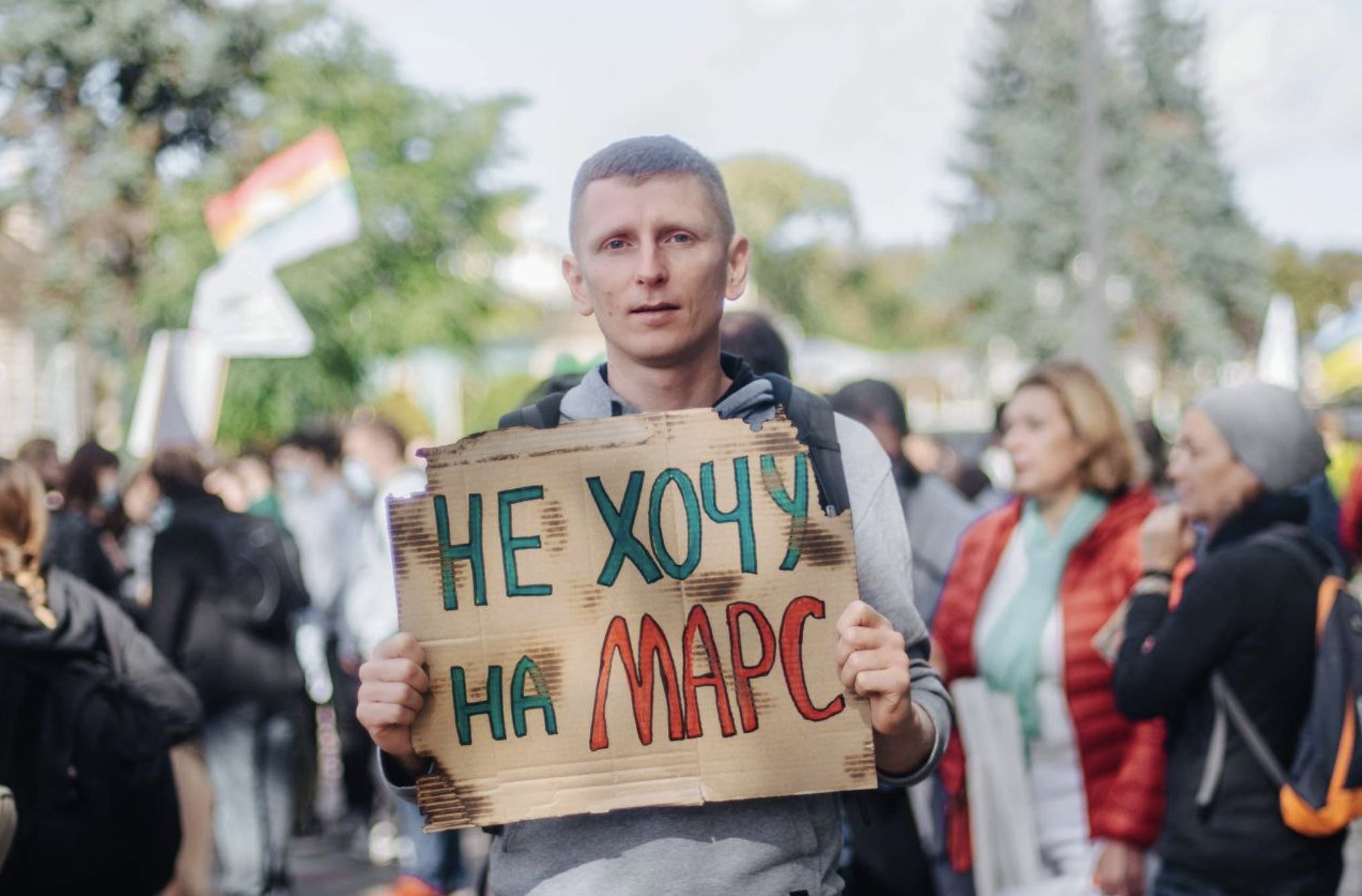
Photo credit: Friends’ archives
To find answers to the difficult questions of our time, Sasha gathered colleagues and all interested parties in public discussions. He co-organized a number of breakthrough international conferences: from “Economic Crisis or Crisis of Neoliberalism?” to the annual “Feuerbach 11.” On these platforms, activists, researchers, and journalists from many countries not only talked about existing problems, but also built dialogue, cooperation, and solidarity to solve them.
Along with editing major analytical works and organizing discussions, Sasha also conducted his own research: he studied a lot of economic data to understand what was happening in Ukraine. Perhaps Sasha’s most famous study is an analysis of the detrimental impact of offshoring on the Ukrainian economy. He analyzed this topic both by himself and together with his fellow economists. In his fundamental historical and economic article “Offshoring from Ukraine. The History of the Formation of the Domestic Economic Model,” he conducts detailed research on the mechanisms of impoverishment of the Ukrainian state budget through “tax loopholes” and explains that deoffshorization will give a chance to develop a fairer economy in Ukraine. While offering specific and effective mechanisms to fight offshoring here and now, Sasha emphasized that “the problem of capital hiding is impossible to solve without replacing the whole system of commodity and money economy with a more progressive method of distributing resources.”
Sasha saw economic injustice not only as a consequence of the global capitalist system. He viewed the economy as a political process that is governed by the decisions of specific actors. So, he paid great attention to the study of internal political and economic dynamics in Ukraine. A number of his articles are devoted to criticizing the oligarchic raw material model of the Ukrainian economy. Through the array of data on production and extraction, imports and exports, foreign exchange and tax revenues, Sasha saw the failure of the Ukrainian government’s economic policy, which directly affected people’s lives. For example, a policy focused on large agricultural holdings, he noted, leads to imbalances in the agricultural sector that “directly affect the development of rural areas,” which “pushes the most active [residents] to forced emigration, and condemns others to poverty and unemployment.”
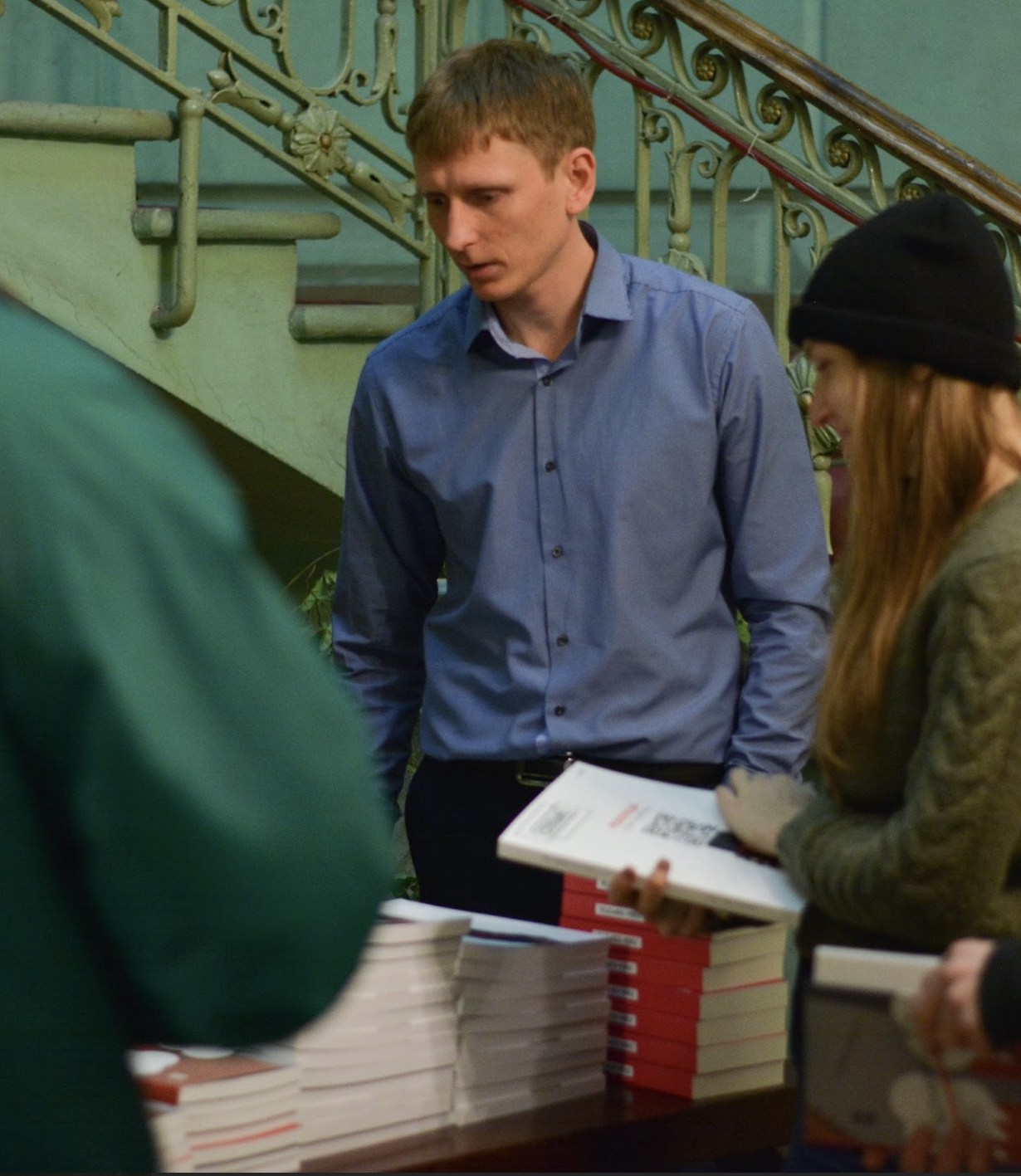
Photo credit: Friends’ archives
The search for answers to the question of how we can live and work with dignity led Sasha to another important topic of his research: foreign debt. This topic resulted in another in-depth study, “The Origins of Ukraine’s Debt Dependence,” in which Sasha analyzes this process since 1991 and points out the consequences of short-sighted government policies for the independent development of society. At the end of the article, he asks the question about “the role of the ‘people’s’ government, if the citizens’ interests are secondary to the dictates of international capital.” With the beginning of the full-scale invasion in 2022, Sasha returned to the topic of debt dependence and actively joined the campaign for the cancellation of Ukraine’s foreign debt. In March 2022, while living near Kyiv and working under the sound of shelling, he emphasized in an interview with the American publication Jacobin:
“Today it is difficult to imagine what peaceful life in Ukraine will be like after the war. But we need to work on building an independent and socially just society right now. That is why we must demand that the debt yoke goes to the dustbin of history — along with the army of Russian invaders.”
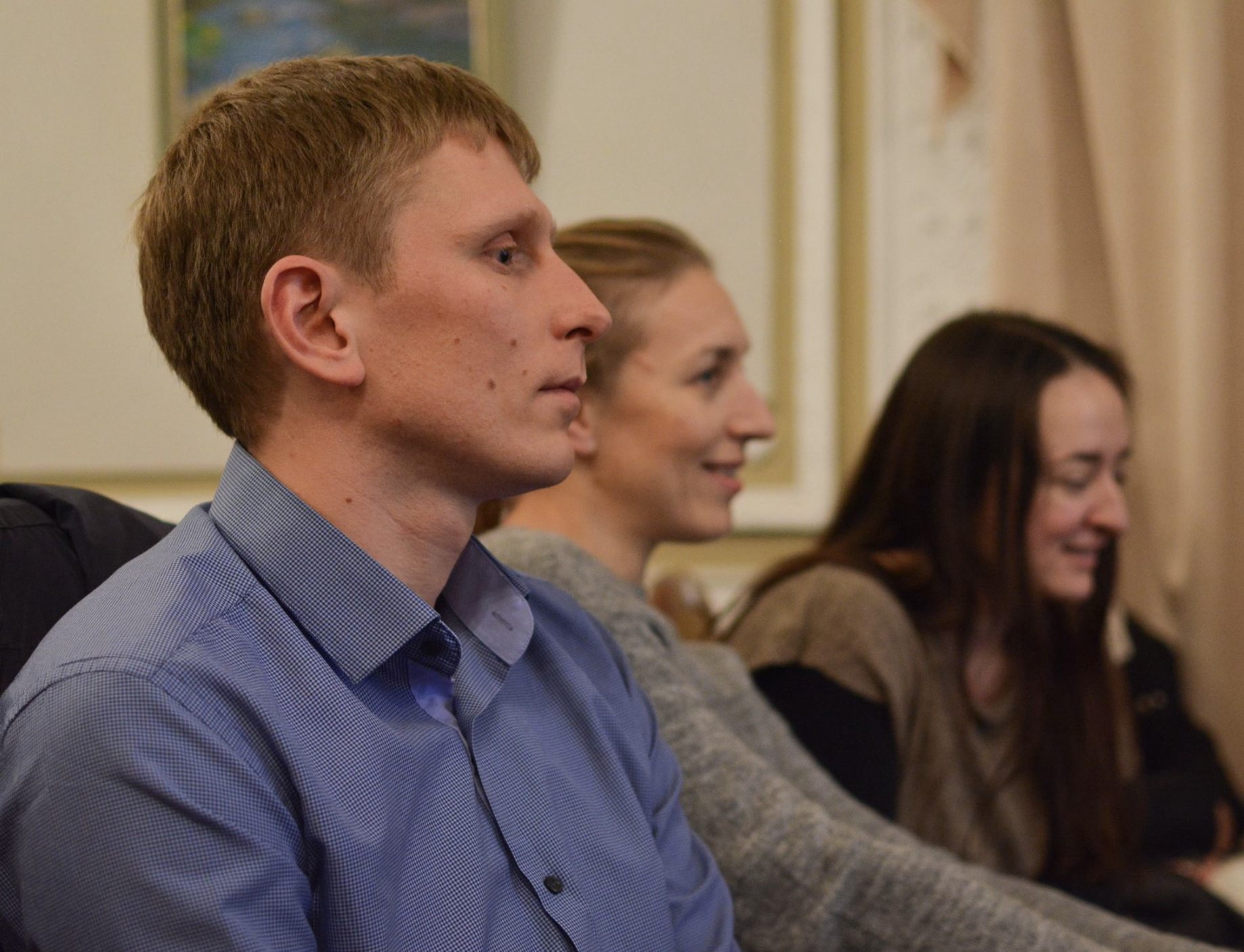
Photo credit: Friends’ archives
A Colleague: Text Is Love!
For Sasha, economics was not something abstract, a set of numbers on which to build beautiful models and a brilliant career. He saw inequality, poverty, and injustice in the world around him and directly in the lives of the people he talked to. Sasha often recounted some of the everyday manifestations of the problems we write about in the journal. He would tell us about the consequences of the “optimization” of the hospital his friends used to go to, or how the privatization of the Ukrainian Railways affects the welfare of its employees, his former colleagues. And every time he told such a story, his words were filled with empathy and indignation. He wanted to change this reality.
In addition to researching economic processes, Sasha channeled his energy and desire for change into his editorial work at Commons. And he was very good at it: he managed to organize the work of the people — authors, translators, designers, accountants, editors, and many others — who create Commons. At the center of his approach was the notion of decent work: as much as he could, Sasha tried to organize fair pay and acceptable working hours for everyone involved. “Should we kick you out of the work chat?” he would half-jokingly ask when sending someone from the editorial team on vacation. Also half-jokingly, when redistributing some work among people on the editorial board, he emphasized that he was doing it “in order to reduce the socially necessary labor for the production of this important material :)”.
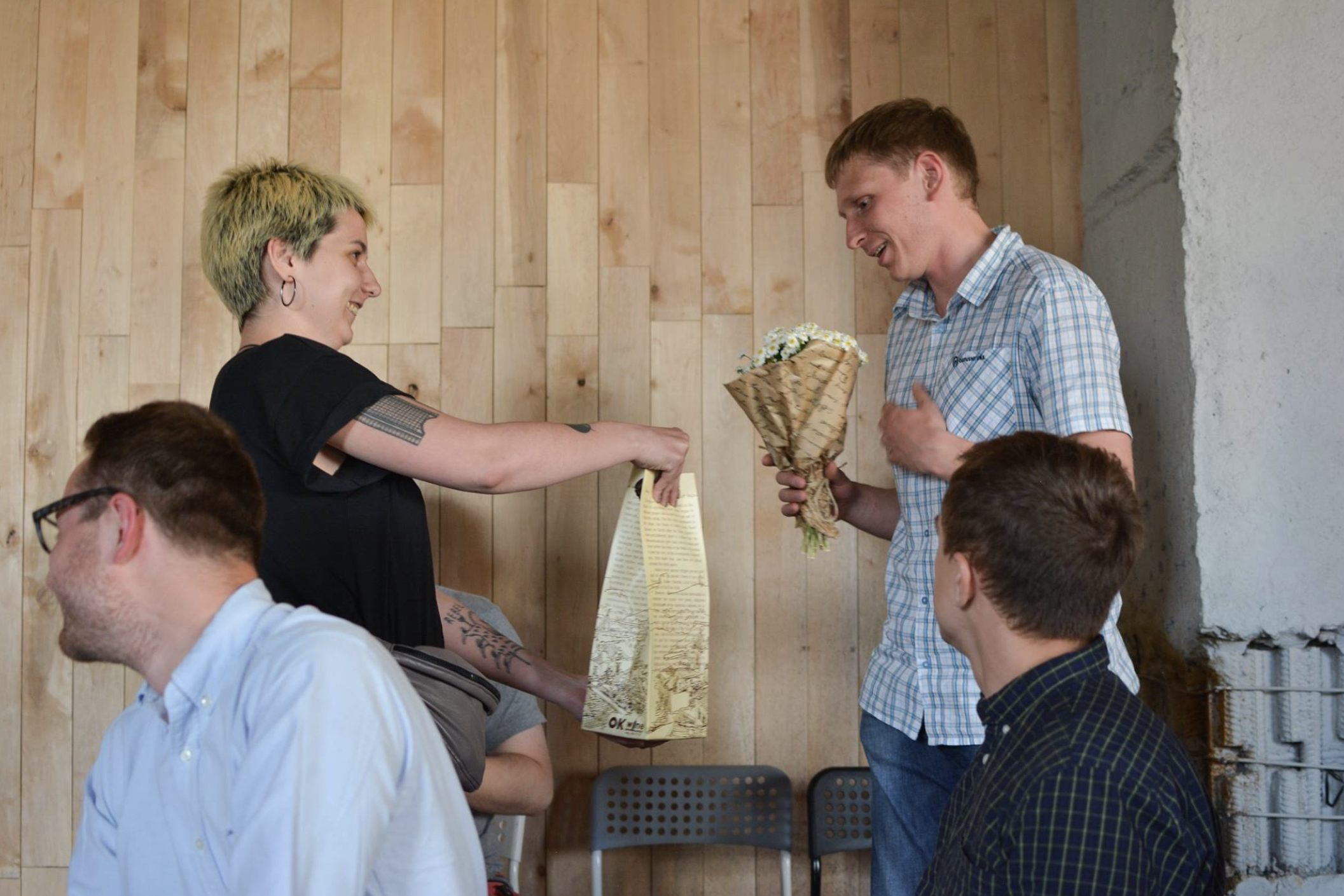
Photo credit: Friends’ archives
“Thank you for your important work,” Sasha praised in a way that inspired and motivated everyone around him. At the same time, he presented it as something perfectly natural: “Do you need a reason to tell the good truth to good people?”. Sasha criticized in such a way that it never devalued the work done. When communicating with authors, he was able to point out the weaknesses and strengths of texts and review in such a way that the person did not lose motivation to improve their work. Sasha was happy when people took his comments into account and took the author’s obstinacy with a sense of humor: “I fought for every edit, you’re stubborn as a mule, you are :),” he would jokingly complain. Sometimes, when people reached a dead end, Sasha would say “Ugh, I’ll try to cook something up on my own,” and would rewrite entire sentences, offering more concise, accurate, and clear wording. Some texts and authorial styles were especially precious to Sasha. For example, speaking about Evheny Osiyevsky’s last reportage, which he wrote a year before his death at the front, Sasha said: “Evheny’s text is love!”.
But he was thinking not only about the team: as an editor, it was important to him that Commons remained interesting and accessible to readers. Sasha always advocated for making texts easier to read so that they reach a wider audience. Although Sasha was knowledgeable in various academic fields, he did not like academic jargon and complex, convoluted sentences. He once said that “you have to squeeze out the academicism one drop at a time.” Of course, this meant giving up not academic accuracy, but the habit of writing in heavy, incomprehensible language. He had a rule that sentences in a text should be easy to read aloud, and he actually read them aloud. “Why publish gobbledygook?” he asked. For him, it was both about getting out of the academic ivory tower and about respect for the audience.
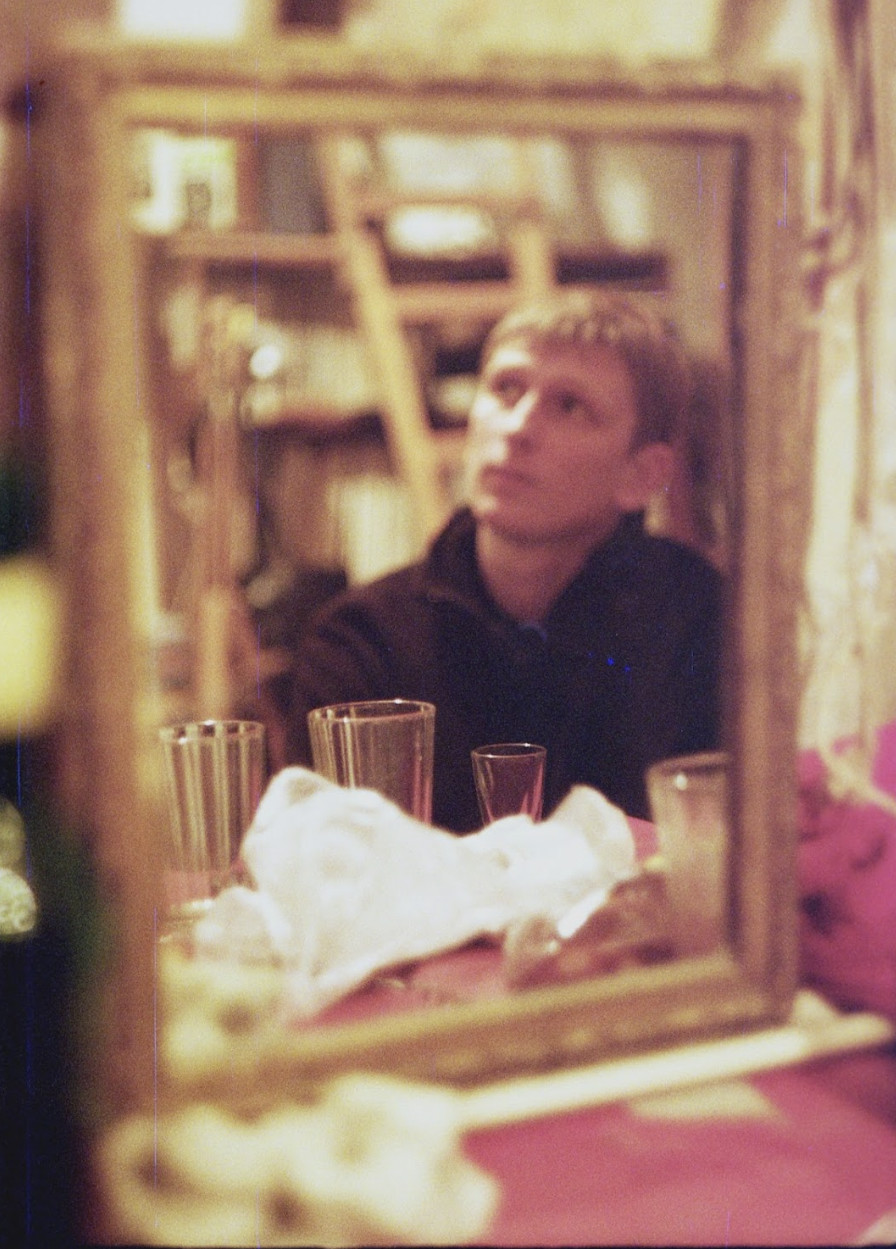
Photo credit: Friends’ archives
Sasha was an inspiration to the editors and authors of Commons. When he came up with an idea for an article, he would share his vision with others so well that they immediately wanted to see the text on the website. He was sincerely happy when the article received many views, and he did not forget to tell those who worked on the article about it: he sent feedback from readers to the author. Sasha loved what he was doing so much that we all wanted to work on the development of Commons together. His irresistibly positive attitude and humor, his ability to plan quickly but carefully, motivated those around him. He was able to support everyone in their daily work and in difficult moments. At the beginning of the full-scale invasion, Sasha remained in Kyiv with a leg injury, unable to go down to the shelter, and yet he was the one who brought us all together to resume the work of Commons.
A Friend: I’d Advise Everyone to Enjoy the Mountains and the Sea
Sasha not only knew the economic side of things better than any of us and had the best organizational skills, he was also known for his wide range of interests: he loved hiking, playing the guitar around the campfire, and various sports, from yoga and dancing to volleyball and rock climbing.
Some of us met Sasha through a Kyiv film club that screened socially critical movies from all over the world. He actively participated in the discussions after the screenings and was inspired to start a film club in his hometown of Turbove.
Where Sasha found the time and energy to do everything may seem like a mystery. He always worked hard and took responsibility, perhaps more than any one of us. But this diligence was surprisingly balanced with his attitude to rest as something sacred.
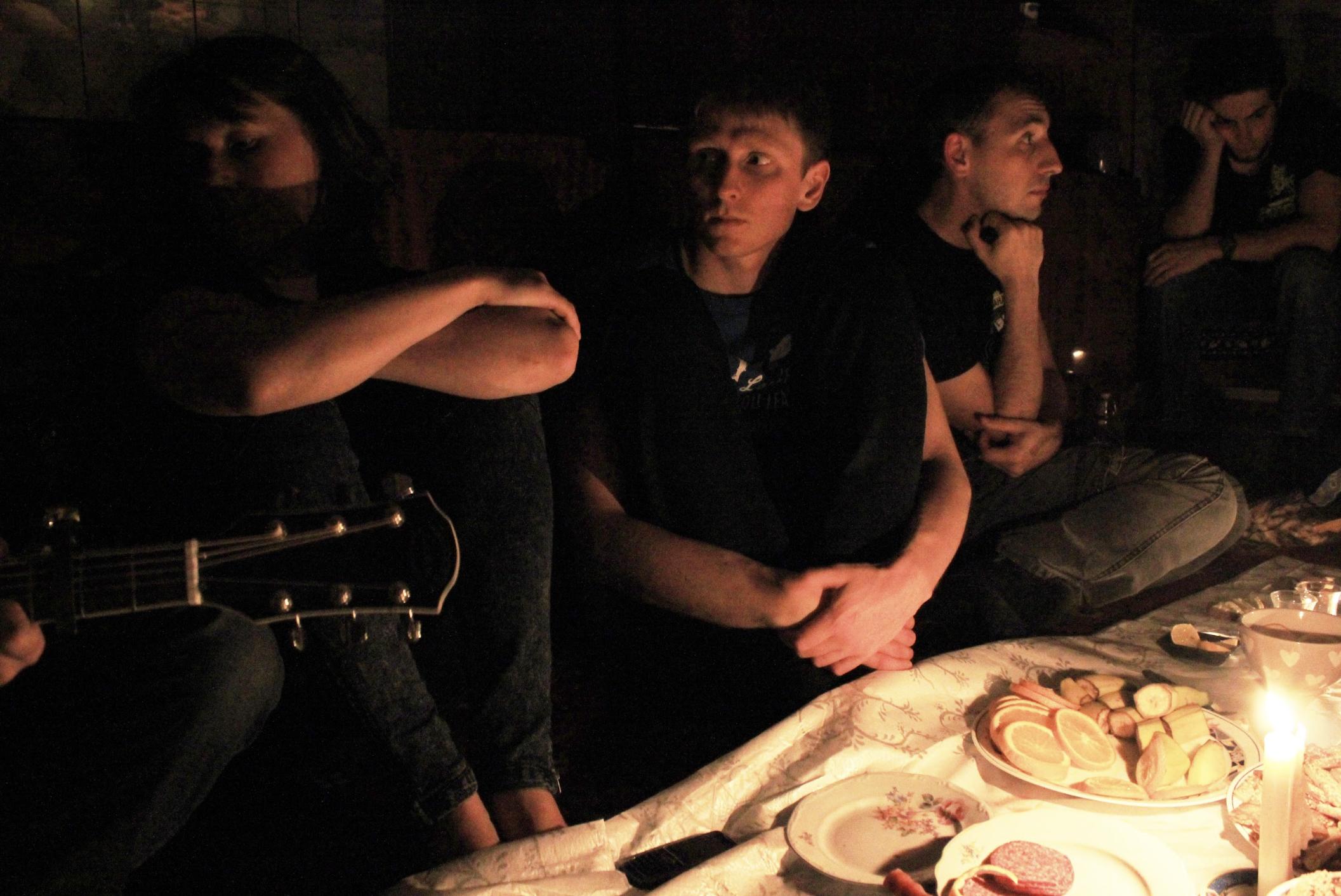
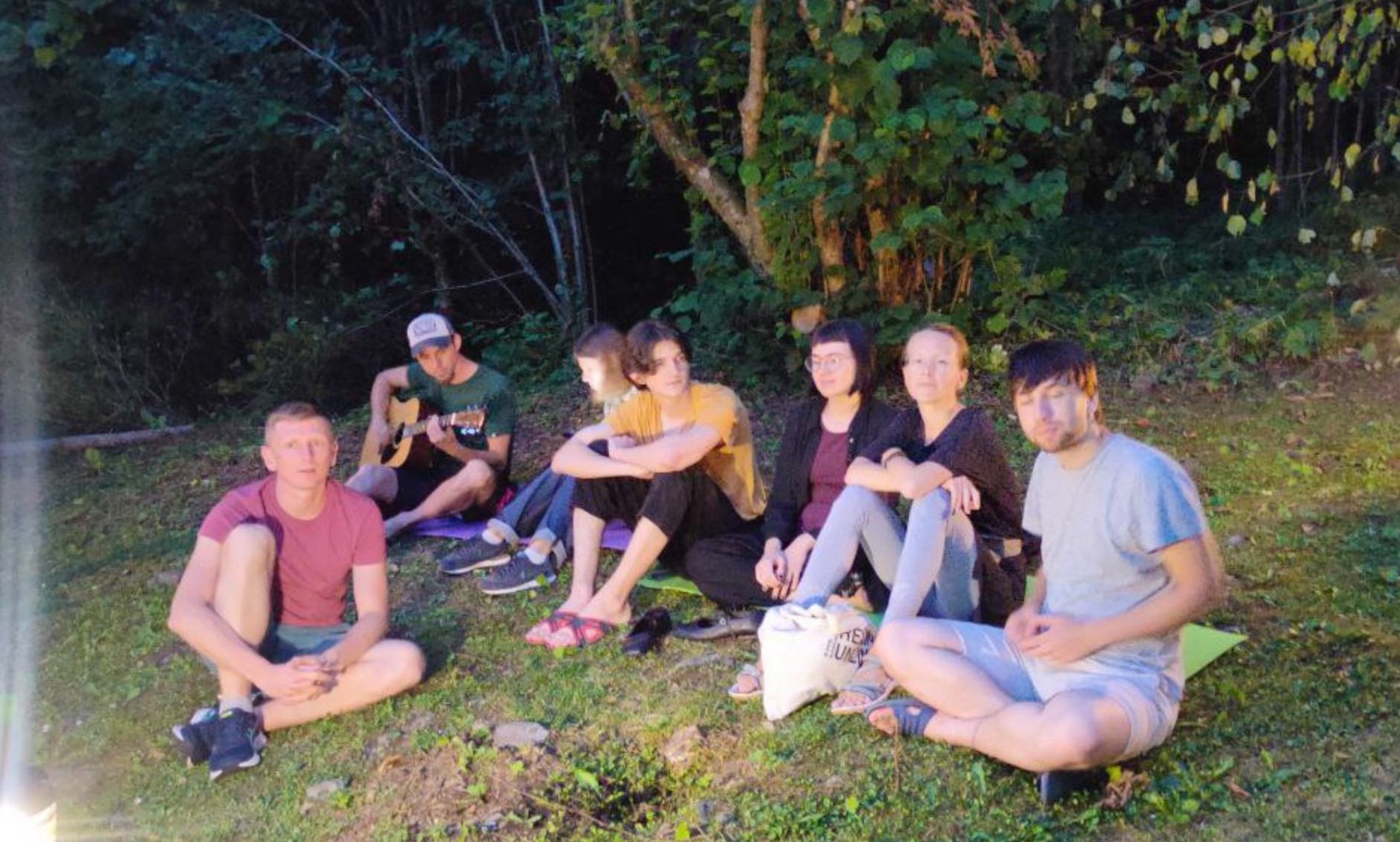
Photo credit: Friends’ archives
After work, Sasha would often go for sports, walk around Podil with his friends or swim in the Dnipro River, ride his bike, go to the movies or visit friends. And on vacation or weekends, he would go to the countryside — to the mountains, forests, and lakes. “Life is short,” he would often repeat. Sasha knew how to plunge into the whirlpool of the big city, active movement, and communication. But he also knew how to put down his gadgets, slow down, listen to the birds, and look into the distance at the fading sunsets.
Sasha would sometimes mention that the writer Vasyl Zemlyak, author of The Swan Flock, which was used as the basis for the movie Babylon XX, was born in Koniushivka, a neighboring village near Turbove. Our friend shared the message delivered by Fabian, the village philosopher in the movie: “Take your time. The point is not to find the right road as soon as possible, but to see as much as possible on that road.”
And he saw a lot. “We came down from the mountains, and it was so warm and the apple trees were in full bloom,” Sasha could share his joy when he got in touch after the hike. He sent his friends photos of flowers, mountain and sea views, dogs, cats, squirrels he met along the way — he himself was full of the life that he shared with us, both in moments of movement and in moments of contemplation. “Mountains are my middle name. I’d advise everyone to enjoy the mountains and the sea,” Sasha said.
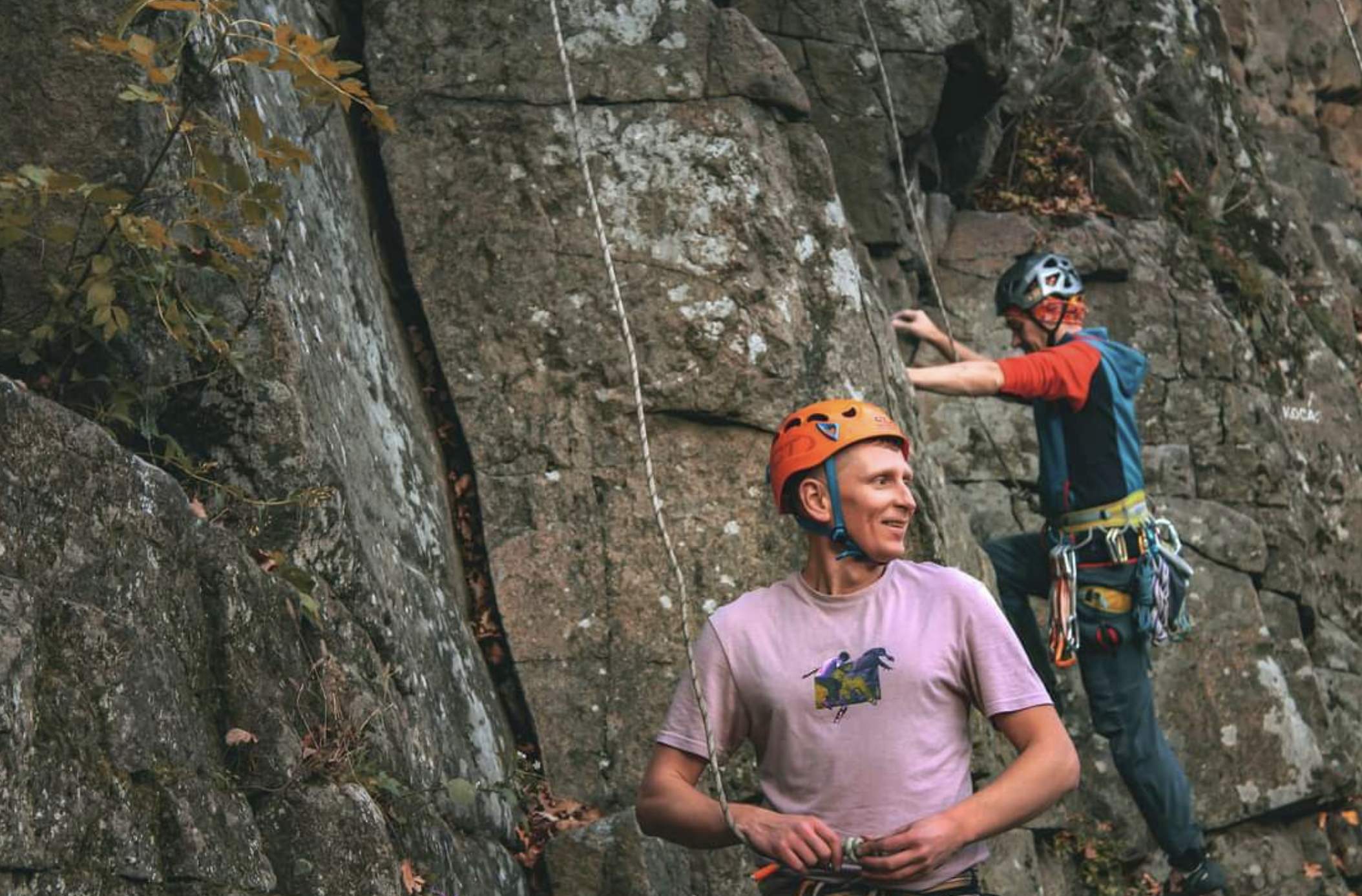
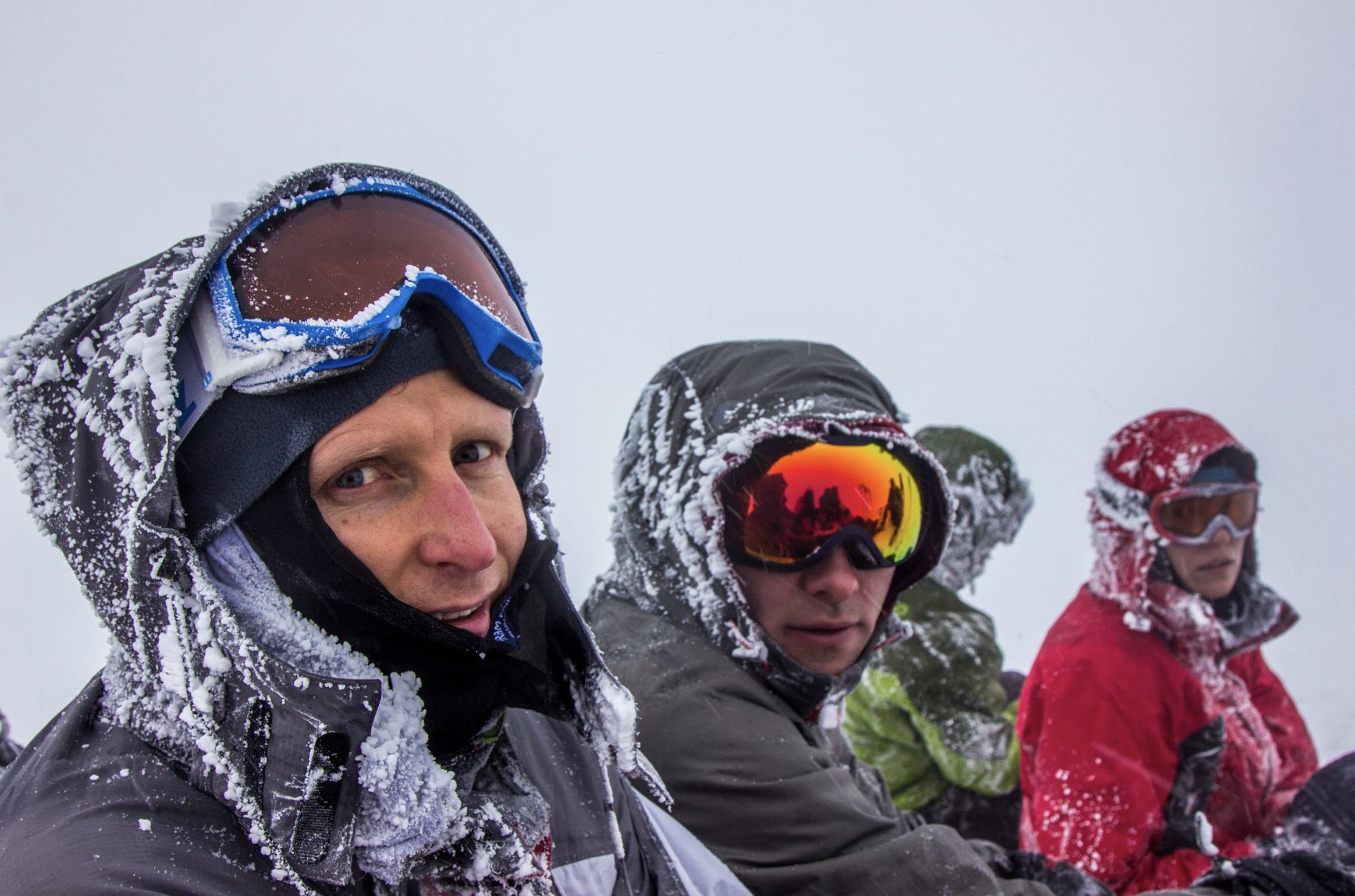
Photo credit: Friends’ archives
He made people fall in love with him with his sincerity and straightforwardness, which is why people were drawn to him. Sasha was able to share his joys, sorrows, fears, and hopes with his friends. No matter what he was talking about — the beauty of nature, a broken heart, anger at injustice, meeting a new person, or how many views an article got — he fully lived through these experiences and emotions. After all, Sasha believed that “life is full of opportunities, and if you are open-minded, sometimes they smile upon you.”
***
Sasha liked articles to have clear conclusions. He often asked our authors to revise this part of their texts. That’s why we’re going to end this article with the key point: Sasha gave a lot to our team, to our readers, to Ukrainian critical thought, and to the left-wing movement.
We will continue our common work. We can draw strength from Sasha’s research, from memories of Sasha, and from what he taught us. We can swim in every lake, walk every path, see the best in every person and believe in everyone, be demanding of ourselves and support others. We keep our chins up and fight for what we believe in, always remaining open to life.
We love Sasha and miss him very much. And we know what he would say to us now:
“There will be life, and there will be joy, I promise and send you a hug!”



